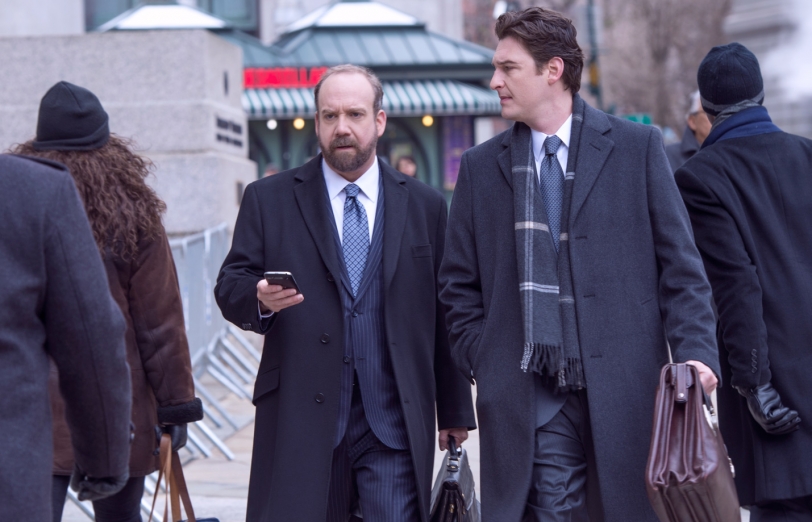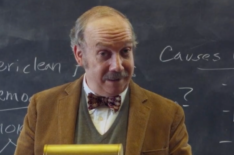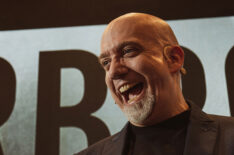Paul Giamatti
Credits

Downton Abbey: The Grand Finale
Actor
Harold Levinson
Movie
2025

Off Script With The Hollywood ReporterStream
Guest
Talk
2023

The HoldoversStream
Actor
Paul Hunham
Movie
2023

Woodpeckers: The Hole Story
Narrator
Show
2022

The U.S. and the HolocaustStream
Voice
Madison Grant
Docuseries
2022
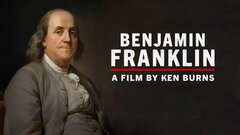
Benjamin FranklinStream
Voice
John Adams
Movie
2022

The Sons of Sam: A Descent Into DarknessStream
Narrator
Movie
2021

Jungle CruiseStream
Actor
Nilo
Movie
2021

Gunpowder MilkshakeStream
Actor
Nathan
Movie
2021

A Mouthful of AirStream
Actor
Dr. Sylvester
Movie
2021

Empires of New YorkStream
Narrator
Docuseries
2020

Empires of New YorkStream
Self
Docuseries
2020

30 CoinsStream
Actor
Christian Barbrow
Series
2020

Today 3rd Hour
Guest
Show
2018

Lodge 49Stream
Executive Producer
Series
2018

Lodge 49Stream
Guest Star
Series
2018

Lodge 49Stream
Producer
Series
2018

The Late Late Show with James Corden: UK Specials
Guest
Show
2018
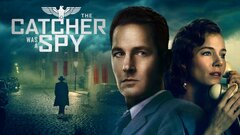
The Catcher Was a SpyStream
Actor
Samuel Goudsmit
Movie
2018

Croc-Blanc
Voice
Beauty Smith
Movie
2018

I Think We're Alone Now
Actor
Patrick
Movie
2018

Private LifeStream
Actor
Richard
Movie
2018

The Tommy Tiernan Show
Guest
Show
2017

Jim & Andy: The Great Beyond - Featuring a Very Special, Contractually Obligated Mention of Tony Clifton
Actor
Movie
2017

Soirée pyjama
Actor
Acteur/actrice
Show
2016

OutsidersStream
Executive Producer
Series
2016

BillionsStream
Actor
Chuck Rhoades
Series
2016

Ratchet & Clank
Voice
Chairman Drek
Movie
2016

The Phenom
Actor
Dr. Mobley
Movie
2016

MorganStream
Actor
Dr. Alan Shapiro
Movie
2016

BreakthroughStream
Director
Series
2015

BreakthroughStream
Narrator
Series
2015

The Late Show With Stephen ColbertStream
Guest
Talk
2015

The Late Late Show With James Corden
Guest
Talk
2015

San AndreasStream
Actor
Lawrence
Movie
2015

Straight Outta ComptonStream
Actor
Jerry Heller
Movie
2015

Goldfish
Voice
Goldfish
Movie
2015

The Little Prince
Voice
The Academy Teacher
Movie
2015

April and the Extraordinary World
Voice
Pizoni
Movie
2015
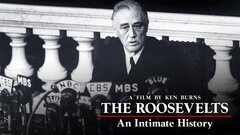
The Roosevelts: An Intimate HistoryStream
Voice
Docuseries
2014

Late Night With Seth MeyersStream
Guest
Talk
2014

The Tonight Show Starring Jimmy FallonStream
Guest
Talk
2014

Love & MercyStream
Actor
Dr. Eugene Landy
Movie
2014

Madame Bovary
Actor
Monsieur Homais
Movie
2014

River of Fundament
Actor
Ptah-Nem-Hotep
Movie
2014

The Amazing Spider-Man 2Stream
Actor
Aleksei Sytsevich
Movie
2014

12 Years a SlaveStream
Actor
Theophilus Freeman
Movie
2013

Romeo & Juliet
Actor
Friar Laurence
Movie
2013

ParklandStream
Actor
Abraham Zapruder
Movie
2013

The Congress
Actor
Dr. Barker
Movie
2013

Saving Mr. BanksStream
Actor
Ralph
Movie
2013

TurboStream
Voice
Chet
Movie
2013

All Is BrightStream
Actor
Dennis
Movie
2013

All Is BrightStream
Executive Producer
Movie
2013

CBS This Morning
Guest
Show
2012

Ernest & Celestine
Voice
Rat Judge
Movie
2012

Rock of Ages
Actor
Paul Gill
Movie
2012

John Dies at the EndStream
Actor
Arnie
Movie
2012

John Dies at the EndStream
Executive Producer
Movie
2012

CosmopolisStream
Actor
Benno Levin
Movie
2012
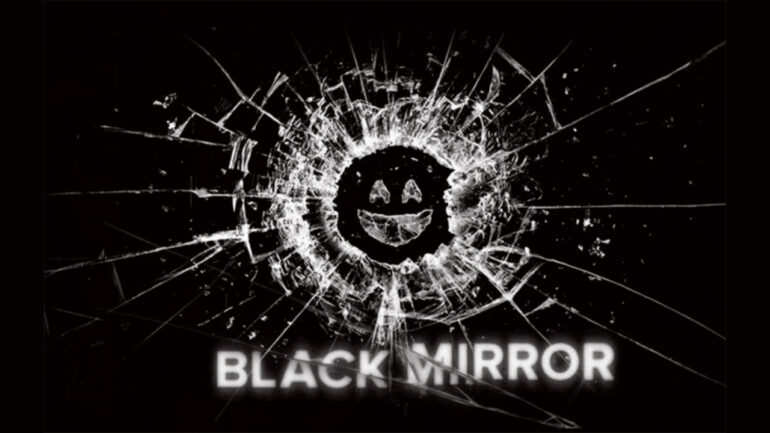
Black MirrorStream
Actor
Phillip
Series
2011

The Hangover Part IIStream
Actor
Kingsley
Movie
2011

Win Win
Actor
Mike Flaherty
Movie
2011

Ironclad
Actor
King John
Movie
2011
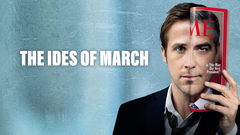
The Ides of MarchStream
Actor
Tom Duffy
Movie
2011

Too Big To FailStream
Actor
Ben Bernanke
Movie
2011

ConanStream
Guest
Talk
2010

Downton AbbeyStream
Actor
Harold Levinson
Series
2010

Downton AbbeyStream
Guest Star
Harold Levinson
Series
2010

George Stroumboulopoulos Tonight
Guest
Show
2010

Lorraine
Guest
Show
2010

Hollywood Uncensored
Guest
Show
2010

Barney's Version
Actor
Barney
Movie
2010

ES.TV
Guest
Show
2009

The Tonight Show With Conan O'Brien
Guest
Talk
2009

Late Night With Jimmy Fallon
Guest
Talk
2009

DuplicityStream
Actor
Richard Garsik
Movie
2009

Cold Souls
Actor
Paul
Movie
2009

The Haunted World of El Superbeasto
Voice
Dr. Satan
Movie
2009
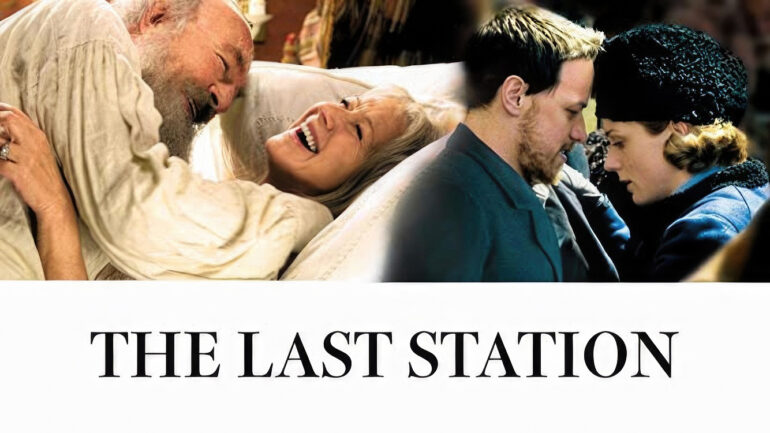
The Last StationStream
Actor
Chertkov
Movie
2009

John AdamsStream
Actor
John Adams
Miniseries
2008

Pretty Bird
Actor
Rick Honeycutt
Movie
2008

Pretty Bird
Producer
Movie
2008

Lyons & Bailes Reel Talk
Guest
Show
2007

The Better Show
Guest
Show
2007

The Nanny DiariesStream
Actor
Mr. X
Movie
2007

Shoot 'Em Up
Actor
Mr. Hertz
Movie
2007

Fred ClausStream
Actor
Nicholas
Movie
2007

Trumbo
Actor
Movie
2007

30 RockStream
Guest Star
Ritchie
Series
2006

The One Show
Guest
Show
2006

Amazing Screw-On Head
Voice
Show
2006

etalk
Guest
Show
2006

Lady in the Water
Actor
Cleveland Heep
Movie
2006

The IllusionistStream
Actor
Inspector Uhl
Movie
2006

The Ant Bully
Voice
Stan Beals
Movie
2006

The Hawk Is Dying
Actor
George
Movie
2006

The Colbert Report
Guest
Talk
2005

Made in Hollywood
Guest
Series
2005
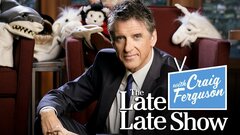
The Late Late Show With Craig Ferguson
Guest
Talk
2005

The Fan and the Flower
Actor
Show
2005

RobotsStream
Voice
Crank
Movie
2005

Cinderella ManStream
Actor
Joe Gould
Movie
2005

Tavis Smiley
Guest
Talk
2004

SidewaysStream
Actor
Miles Raymond
Movie
2004

Jimmy Kimmel Live!Stream
Guest
Talk
2003

The Pentagon Papers
Actor
Anthony Russo
Movie
2003

American SplendorStream
Actor
Harvey
Movie
2003

ConfidenceStream
Actor
Gordo
Movie
2003

PaycheckStream
Actor
Shorty
Movie
2003

Front Row
Guest
Show
2002

Big Fat Liar
Actor
Marty Wolf
Movie
2002

Thunderpants
Actor
Johnson J. Johnson
Movie
2002

Live With Regis and Kelly
Guest
Show
2001

Planet of the ApesStream
Actor
Limbo
Movie
2001

Storytelling
Actor
Toby Oxman
Movie
2001

Entertainment Studios.com
Guest
Show
2000

If These Walls Could Talk 2
Actor
Ted Hedley
Movie
2000
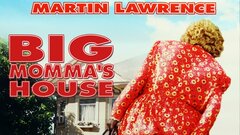
Big Momma's HouseStream
Actor
John
Movie
2000

Duets
Actor
Todd
Movie
2000

The Daily Show With Jon StewartStream
Guest
Talk
1999

Cradle Will Rock
Actor
Carlo
Movie
1999

Man on the MoonStream
Actor
Bob Zmuda
Movie
1999

Kickin' It: With Byron Allen
Guest
Show
1998

EL Padre de la Noticia
Actor
Herman Kurfeld
Movie
1998

Tourist Trap
Actor
Jeremiah Piper
Movie
1998

The Truman ShowStream
Actor
Control Room Director
Movie
1998

Saving Private RyanStream
Actor
Sergeant Hill
Movie
1998

The NegotiatorStream
Actor
Rudy Timmons
Movie
1998

Winchell
Actor
Herman Klurfeld
Movie
1998

Safe Men
Actor
Veal Chop
Movie
1998

The View
Guest
Talk
1997

King of the HillStream
Guest Voice
Mr. McKay
Series
1997

Private PartsStream
Actor
Kenny 'Pig Vomit' Rushton
Movie
1997

My Best Friend's WeddingStream
Actor
Richard the Bellman
Movie
1997

The Show
Guest Star
Show
1996

Entertainers: With Byron Allen
Guest
Show
1994

Late Night With Conan O'Brien
Guest
Talk
1993
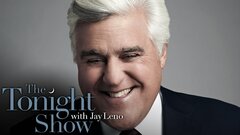
The Tonight Show With Jay Leno
Guest
Talk
1992
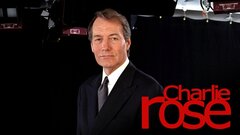
Charlie RoseStream
Guest
Talk
1991

Past Midnight
Actor
Larry Canipe
Movie
1991

I'll Take Romance
Actor
Heckler 2
Movie
1990

NatureStream
Narrator
Series
1982

CBS News Sunday MorningStream
Guest
News
1979

Good Morning America
Guest
News
1975

Saturday Night LiveStream
Host
Series
1975

TodayStream
Guest
News
1952
News aboutPaul Giamatti

‘Downton Abbey 3’ Sets Release Date: Returning Cast & Everything We Know So Far
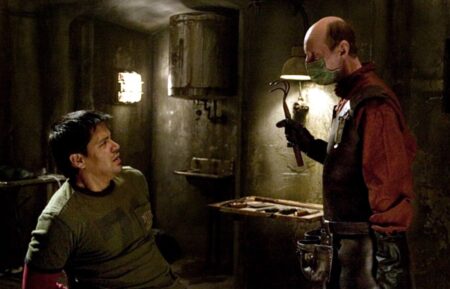
‘Hostel’ Is Coming to TV: Everything We Know So Far
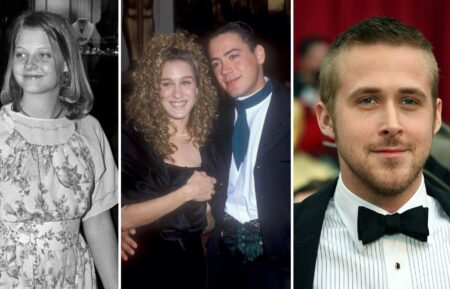
A Look Back at 2024 Nominees at Their First Oscars (PHOTOS)

Oscars 2024 Predictions: Who Will Win & Who Should Win at 96th Academy Awards
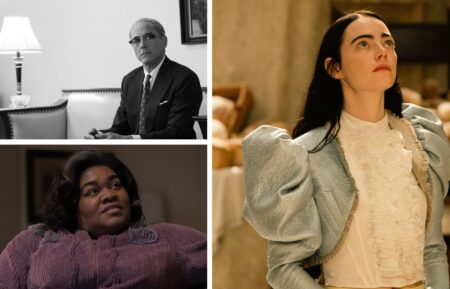
Robert Downey Jr., Da’Vine Joy Randolph & More Oscar Nominees in Their Notable TV Roles
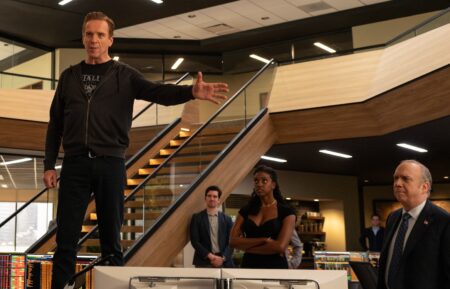
Spoiler Alert
‘Billions’ Director Talks Series Finale Scheme & Gives Update on Spinoffs

As ‘Billions’ Returns, Check Out the Cast’s Other TV Roles

Preview
The Stars of ‘Billions’ Preview What’s Next for the Characters in Season 7

If You’re Loving ‘Suits,’ Watch ‘Billions,’ ‘Scandal’ & More Shows

Preview
‘Billions’ Stars Paul Giamatti & Damian Lewis Tease Potential Season 7 Team Up

‘Billions’ Season 7 Trailer: Damian Lewis Returns for One Last Showdown (VIDEO)
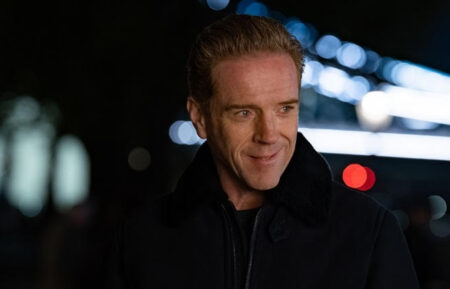
Damian Lewis to Return to ‘Billions’ For Season 7
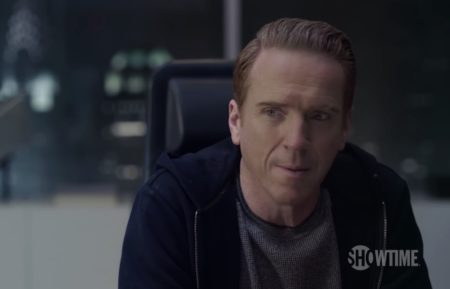
‘Billions’ Season 5 Returns as Chuck & Prince Team Up in New Trailer (VIDEO)

Q&A
‘Billions’ Paul Giamatti: Chuck Wants to Do Things for ‘the Right Reasons’

‘Billions’ Vicious Rivalry Is Reignited in Season 5 Sneak Peek (PHOTOS)

Exclusive
Paul Giamatti’s L. Marvin Metz Arrives at ‘Lodge 49’ in Sneak Peek (VIDEO)
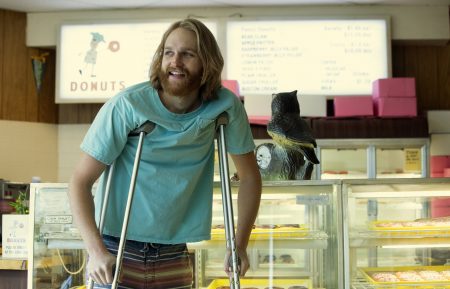
Q&A
‘Lodge 49’ Star Wyatt Russell on Dud’s Journey & Working With Paul Giamatti in Season 2

Preview
‘Billions’ EP Previews What’s Next for Axe, Rhoades & the Crew in Season 4

Sam Heughan on ‘Game of Thrones’? 10 Actors Who Almost Starred on Different Shows

‘Billions’ EP Brian Koppelman Previews Axe & Rhoades’ New Season 3 Agendas
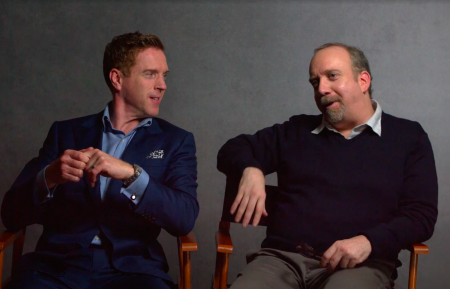
Preview
WATCH: Damian Lewis & Paul Giamatti on More Chuck vs. Axe in ‘Billions’ Season 3
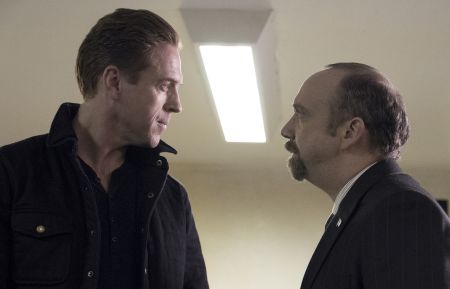
Finale
What’s to Lose for Axe and Chuck in the ‘Billions’ Season 2 Finale?

Showtime’s ‘Homeland’ and ‘Billions’ Get Winter Premiere Dates; ‘Homeland’ Picked Up For 2 More Seasons
